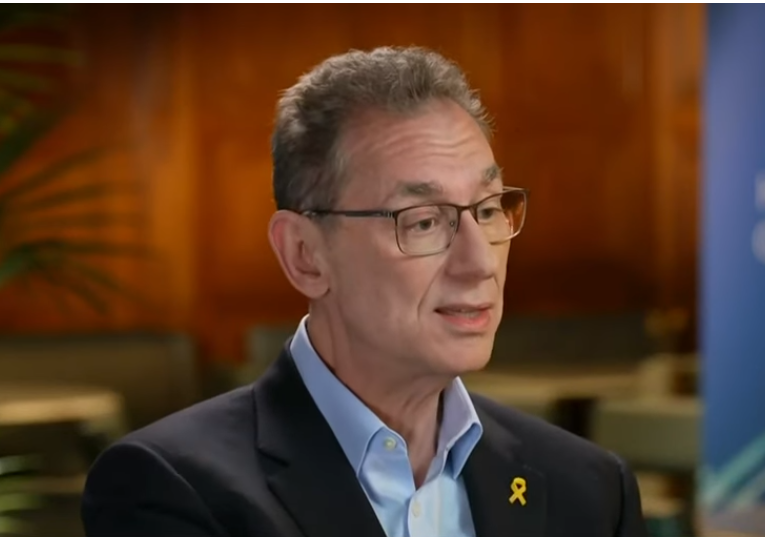Notably, Albert Bourla’s financial success coincided with one of the most tumultuous and significant periods in modern medicine. During the COVID-19 pandemic, Bourla’s role as Chairman and CEO of Pfizer made him a household name—not because he was looking for attention, but because the firm he led became the focal point of the world’s vaccine rollout. His current estimated net worth of over $2 million is the result of a career based on both strategic business acumen and medical knowledge.

Born and raised in Thessaloniki, Greece, Bourla’s early education was unexpectedly based in veterinary medicine. He started his career in biological labs rather than corporate boardrooms, earning a PhD and DVM from Aristotle University. This academic adaptability ultimately brought him to Pfizer in 1993, where he would gradually advance through the ranks of the company, taking on leadership positions in the biopharmaceuticals group and animal health division before rising to the position of COO and, in 2019, CEO.
| Field | Information |
|---|---|
| Full Name | Albert Bourla |
| Date of Birth | October 21, 1961 |
| Place of Birth | Thessaloniki, Greece |
| Education | DVM & PhD, Aristotle University of Thessaloniki |
| Current Role | Chairman & CEO of Pfizer Inc. |
| Stock Holdings | Approximately 81,812 shares of Pfizer Inc. |
| Estimated Net Worth (2025) | Over USD 2 million |
| Board Memberships | Pfizer, Pfizer Foundation, Biotechnology Innovation Organization, Catalyst, PhRMA |
| Notable Award | 2022 Genesis Prize |
| Reference | Pfizer Profile |
A perfect storm of urgency and preparation ensued. The COVID-19 epidemic shattered every aspect of existence just months after he took over as CEO. Instead of faltering under duress, Bourla’s extraordinary dedication led Pfizer into a historic collaboration with BioNTech to create a vaccine based on mRNA. Pfizer succeeded where rival pharmaceutical behemoths faltered or trailed behind. In addition to a revolutionary vaccine, the outcome was a worldwide rollout that altered government collaborations, public health, and attitudes toward pharmaceutical power.
He received more than $24 million in remuneration for the year after the vaccine was approved, a sum that drew both praise and criticism. Such reimbursements, according to critics, were exorbitant, particularly at a time when millions of people lost their jobs and access to healthcare. However, proponents cited the extraordinarily high stakes, quick development schedules, and outstanding outcomes. In addition to reducing the virus’s worldwide impact, the vaccine came to represent scientific triumph in the face of adversity.
Although Bourla’s wealth is significant, it is not comparable to the personal wealth of media titans or internet tycoons. Nevertheless, it is representative of the new generation of executives whose success is determined by impact rather than merely money. His ownership of more than 80,000 Pfizer shares establishes a direct line of communication between his personal wealth and business success, matching his fortunes with the company’s capacity for innovation and delivery.
However, Pfizer’s stock hasn’t increased steadily. Due to market saturation, declining vaccination demand, and public opposition to pharmaceutical price, the corporation has experienced instability after an early spike following vaccine approval. Bourla’s resistance to government meddling in medicine prices has been remarkably outspoken. According to him, while such actions might seem popular, they run the danger of jeopardizing the substantial financial resources needed to study and create the next generation of treatments. Other prominent figures in the biotech industry, such as Robert Davis of Merck and Joaquin Duato of Johnson & Johnson, have also adopted this controversial position.
Bourla’s uncommon transition from biotech boardrooms to the public eye is what sets him apart even more. He has participated in White House press briefings, been interviewed by international media, and even sparked comparisons to A-list actors due to his slick corporate video update delivery. He is frequently featured on lists of high-impact CEOs by Forbes and Bloomberg, especially those who are juggling the fields of crisis management and healthcare.
At the same time, the Greek diaspora finds great inspiration in Bourla’s story. Being a Sephardic Jew whose parents lived through the Holocaust, he is a symbol of fortitude and heritage-based worldwide leadership. Greece bestowed upon him one of its greatest honors, the Golden Cross of the Order of the Redeemer. He regularly attributes his ethical and intellectual curiosity to his Thessaloniki background during ceremonies and interviews.
His leadership has had a significant impact on Pfizer’s organizational structure, even outside of COVID-19. He restructured the business to put R&D first, selling off consumer health divisions and focusing more on biotech research. The creation of Improvac and a renewed emphasis on challenging vaccination targets like Staphylococcus and newborn illness prevention are further examples of his influence. These are indicators that a business is built for long-term resilience, not just product pipelines.
Although net worth is frequently depicted as a figure in financial headlines, Bourla’s story implies something more complex. Unquestionably, his income has grown, but it is linked to a story about crisis management, international collaboration, and moral decision-making. Leaders like Bourla provide a path in a post-pandemic economy where trust in pharmaceuticals is eroded yet urgently needed. This roadmap is extraordinarily effective when capital and conscience work together.











